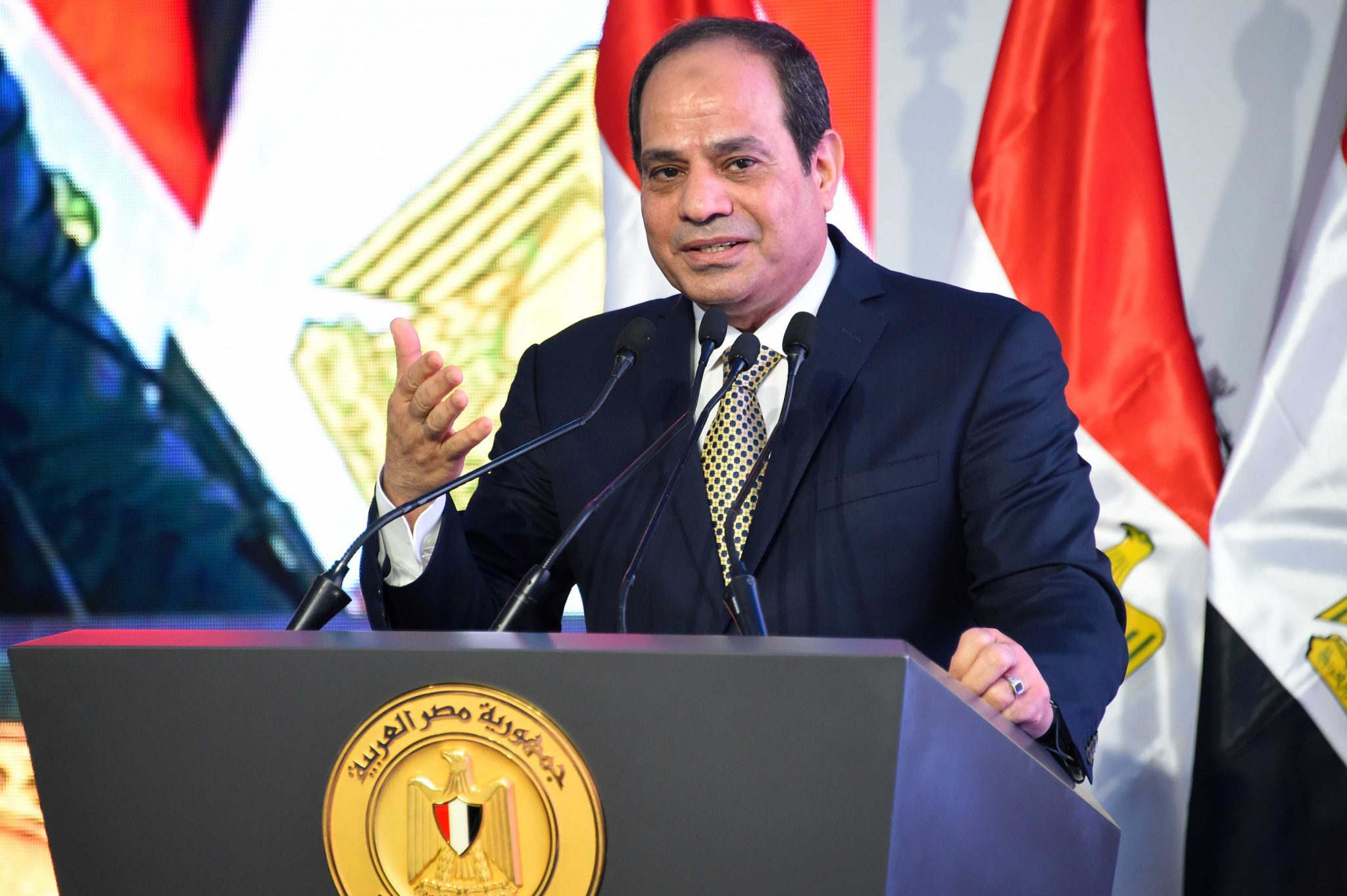The Egyptian President Abdel Fattah al-Sisi has declared his intention to issue a law that suspends the licences for all vehicles except for those operated by natural gas. Everyone found this step outrageous as no country in the world forces people to choose natural gas instead of petrol. Analysts have described it as an attempt to make things right after the mess al-Sisi made importing natural gas. This was not the first time al-Sisi has blamed the Egyptian people for his mistakes.
On January 15, Israel started pumping what amounted to a million cubic feet of natural gas to Egypt under a $15 billion contract between the East Gas Company, owned by the Egyptian General Intelligence, and the Israeli government to import gas from Tel Aviv. This agreement was signed despite the big gas discoveries in Egypt, the largest of which was a field that started producing gas at a rate of 2.7 billion cubic feet daily at the end of 2017. Egypt became gas self-sufficient in September 2018.
Although Egypt had no need for it, al-Sisi imported gas anyway from Israel to liquefy and re-export it to Europe in the hope that Egypt would turn into a global power export centre. When the global trade flow stopped because of the coronavirus pandemic and the energy prices fell dramatically al-Sisi couldn’t find a way to dispose of the gas except by forcing citizens to use it for their vehicles. This new declaration is to be applied to taxis, microbuses, and private cars.
The Renaissance Dam
Al-Sisi’s personal role in the Renaissance Dam issue was the ultimate Egyptian mistake on many levels, since Ethiopia started building it. Al-Sisi’s first mistake was his hostile attitude towards the Sudanese Revolution since it began. A few months after the uprising of the Sudanese people against the dictator who ruled the country for 30 years, al-Sisi decided to welcome him at the peak of the revolution in a move that appeared as Egyptian support of dictatorship against popular demands.
After Bashir was removed shortly after his visit to Cairo, al-Sisi’s regime continued to support the Military Council that adopts dictatorship as its modus operandi. To this moment, Egypt continues to host Bashir’s Director of National Intelligence, Salah Gosh, who is accused by parties of the Sudanese government of conspiring against the revolution and the democratic path.
Another mistake was al-Sisi’s signing of the Declaration of Principles with the Sudanese and Ethiopian sides in 2015. This declaration constitutes the only legal foundation upon which Ethiopia bases building the dam, according to Dr. Ahmed el-Mufti, the resigned member of the International Committee of the Renaissance Dam and International Law Expert.
Dr. el-Mufti also said that the declaration was written by seven Ethiopian experts without the participation of any Egyptian or Sudanese experts. El-Mufti asserted that this declaration was the document that gave international legality to the dam. Many experts had advised that this declaration should be referred to the parliament to be rejected as an initial step. Al-Sisi, however, refused to listen so as not to admit that he made a mistake.
The dam is expected to affect Egypt’s rations of the Nile water as the Nile provides more than 95 per cent of the country’s water. The annual Egyptian quota of the river of about 55.5 billion m3 is no longer enough to meet the country’s needs. Moreover, Egypt has become one of the countries suffering from water scarcity with only 500 m3 per person annually, which is half the amount established by the International definition for Water Scarcity and estimated to be 1,000 m3 per person per year. The current water deficit in Egypt amounts to 40 billion m3. The Egyptians will have to endure this inhumane situation because of al-Sisi’s mistakes in handling this issue.
The Suez Canal
The third issue is the economic one, where al-Sisi failed miserably. He authorised completely unfeasible projects like digging the new Suez Canal shunt at a cost of $8 billion and the new administrative capital that will cost about $45 billion. There was also financial corruption in the form of building palaces or distributing uncensored gifts to bodies and institutions.
Al-Sisi has resorted to making the people bear the sting of this corruption and failure by increasing the fees for all services, the latest of which was increasing vehicle fees from about 1 EGP ($0.60) only to 100 EGP ($6.26), deducting one per cent of the workers and employees’ salaries and raising the construction reconciliation fine to EGP 250,000 ($15,656).
Moreover, electricity prices were increased by 19 per cent and new fees were charged for petrol by adding 30 piasters per litre of petrol and 25 piasters per litre of diesel. The fees for mobile phones and accessories were also increased by five per cent of its value in addition to the added value taxes. The external debts and loans for this year only have amounted to about $13 billion.





Recent Comments